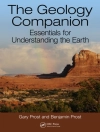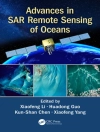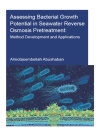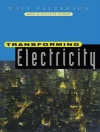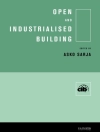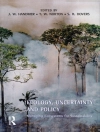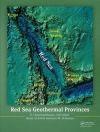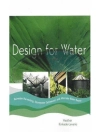As we approach a historic tipping point in the global trend toward urbanisation – within two decades urban dwellers will increase from 49% to 60% of the planet’s population – this book identifies and addresses a critical problem: water. The editors show how cities can shift from being water consumers to resource managers, applying urban water management principles to ensure access to water and sanitation infrastructure and services; manage rainwater, wastewater, storm water drainage, and runoff pollution; control waterborne diseases and epidemics; and reduce the risk of such water-related hazards as floods, droughts and landslides.
The book explores the Multiple-Use Water Services (MUS) paradigm, offering a section on the MUS approach and a means of calculating the value of MUS systems, as well as tools and resources to support decision-making. Case studies illustrate MUS in selected urban and rural contexts. Each case study breaks out the challenges, policy framework, benefits, benchmarks, lessons learned (success and failures) and potential next steps.
The contributors consider the main options for applying the Multiple-Use Water Services (MUS) paradigm, breaking down its components and offering cost-benefit analyses along with challenges and considerations for both the short and long term. Also discussed are methods by which mutual interactions of water infrastructure and vegetated areas are taken into account in the synergy of spatial planning and optimised modelling of ecosystems’ performance indicators. This method of planning should make future developments cheaper to build; their users will pay lower utility bills for water, energy and heating. These developments will be more pleasant to live in and property value would likely be higher.
The brief includes a section on the MUS approach and a means to calculate the value of MUS systems, as well as provides tools and resources to support decision-making. Case studies are included to illustrate MUS in selected urban and rural contexts. Each case study breaks out the challenges, policy framework, benefits, benchmarks, lessons learned (success and failures) and potential next steps.
Tabela de Conteúdo
Module 1: Rethinking Infrastructure Design For Multi-Use Water Services.- 1. Introduction.- 2. The Most Apparent Impacts of Climate Changes And Variability.- 3. What Is Wrong with Existing Systems?.- 4. What Is the Blue Green Solution Concept?.- 4.1 Reduced Pluvial Flood Risk.- 4.2 Water Pollution.- 4.3 Alternative Water (Re)Sources.- 4.4 Urban Heat Island.- 4.5 Air Pollution.- 4.6 Droughts.- 4.7 Urban Agriculture.- 4.8 Urban Amenity and Blue Green Corridors.- 5. Conclusions.- References.- Module 2: What Are the Main Options For Applying the Blue-Green Dream.- 1. Introduction.- 2. Wastewater Reuse And Recycling.- 3. Urban Green Spaces.- 4. Rainwater Harvesting.- 5. Green Roofs.- 6. Urban Agriculture.- 7. Living Wall Systems.- 8. Decentralized Systems To Manage and Reuse Stormwater Runoff On-Site.- 9. Integrating Blue and Green Measures.- 10. How Can We Calculate the Value of Blue Green Systems?- 11. Tools For Supporting Urban Blue-Green Design.- 12. References.- Module 3: Case Studies Illustrating The Blue-Green Options.- 1. “Four Alls For All”: Policy Act On Decentralized Water Supply Through Rainwater Harvesting and Management Systems in Seoul.- 2. Water Sensitive Urban Design in Lynbrook Estate, Melbourne, Australia.- 3. Green City, Clean Waters: The Vision Of Philadelphia.- 4. Integrated Water Recycling in Brisbane, Australia.- 5. Bedzed – Zero Energy Development.- References.
Sobre o autor
Prof. Dr. Reza Ardakanian is the Founding Director of United Nations University Institute for Integrated Management of Material Fluxes and of Resources (UNU-FLORES^ry of Interior (1987–1989).
Dr. Mathew Kurian is Academic Officer and leads the Capacity Development and Governance unit at United Nations University Institute for Integrated Management of Material Fluxes and of Resources (UNU-FLORES). Prior to joining UNU-FLORES, he served as Senior Water and Sanitation Specialist at Water and Sanitation Programme (WSP) of The World Bank where he led policy advocacy efforts related to rural water supply, wastewater reuse, and climate adaptation options in secondary towns. He began his career as a Robert Mc Namara Fellow at the World Bank where his work on land tenure reform was hosted by the Tata Energy Research Institute (TERI), New Delhi.
Upon completing his Ph D in Development Studies from the Institute of Social Studies (ISS), Erasmus University, The Hague, Netherlands, Dr. Kurian was employed as Associate Expert (Dutch Ministry of Foreign Affairs) at International Water Management Institute (IWMI-CGIAR) where he undertook assessments of soil and water conservation interventions in the Mekong and Nile river basins. In 2009 as member of faculty at UNESCO-IHE, Delft, Dr. Kurian led the development of a policy note on urban sanitation and the Millennium Development Goals (MDGs) for the Directorate General of International Cooperation (DGIS) in the Netherlands. While still at UNESCO-IHE, Dr. Kurian developed an online e-learning course on governance of water and sanitation services in developing countries.
He has published in the area of water institutions and policy and has mentored students of the MSc programme in environment and development planning while on the faculty of University College London (UCL). His experience in the field of capacity development includes training civil servants and managers of water utilities in Iran and Tanzania, consulting assignments with the Asian Development Bank (ADB), Philippines and teaching undergraduate courses in human geography at the University of British Columbia (UBC) Vancouver, Canada. In his current function, he leads the design of public policy research, policy advocacy in support of evidence-based decision making and fund raising to support establishment of a nexus observatory network.


